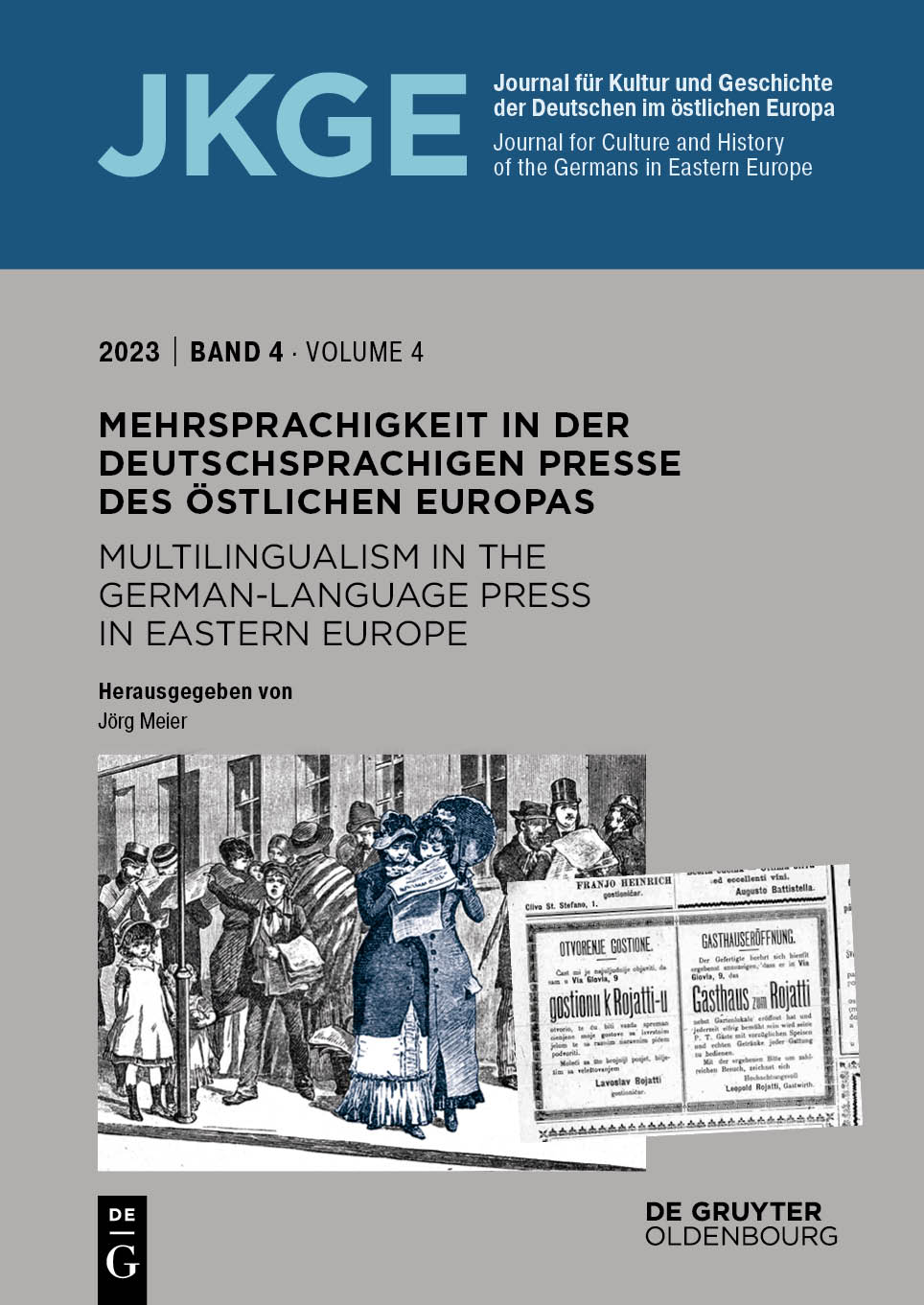„Ju Labommels, ju faule Mestkepp“: Städtische Mehrsprachigkeit rund um das Danziger Missingsch in den Reportagen von Richard Teclaw
“Ju Labommels, ju faule Mestkepp”: Urban Multilingualism and the ‘Missingsch’ of Danzig in the Reportages of Richard Teclaw
Author(s): Peter Oliver Loew, Janusz MosakowskiSubject(s): Language studies, Cultural history, Ethnohistory, Nationalism Studies, Interwar Period (1920 - 1939), Ethnic Minorities Studies, Identity of Collectives
Published by: De Gruyter Oldenbourg
Keywords: Missingsch; reportages; Danzig; identity; Polish;
Summary/Abstract: Between the two World Wars Danzig (Gdańsk) was very much a multilingual society. Different levels of German (High German, different varieties of the urbanolect Missingsch and Lower German) coexisted with the Slavic languages of Polish and Cashubian, as well as with Yiddish. An important source that is not featured by historic linguistic research, are the reportages written in the 1920s and in the first years of the 1930s by the journalist Richard Teclaw. The paper focuses on selected examples of Missingsch- lexis, situations and contexts of using the different varieties of German in Danzig. We argue that it is important to look in a differentiated manner at those situations in cities which, like Danzig, were torn between many dynamics.
Journal: Journal für Kultur und Geschichte der Deutschen im östlichen Europa
- Issue Year: 4/2023
- Issue No: 1
- Page Range: 161-178
- Page Count: 18
- Language: German

